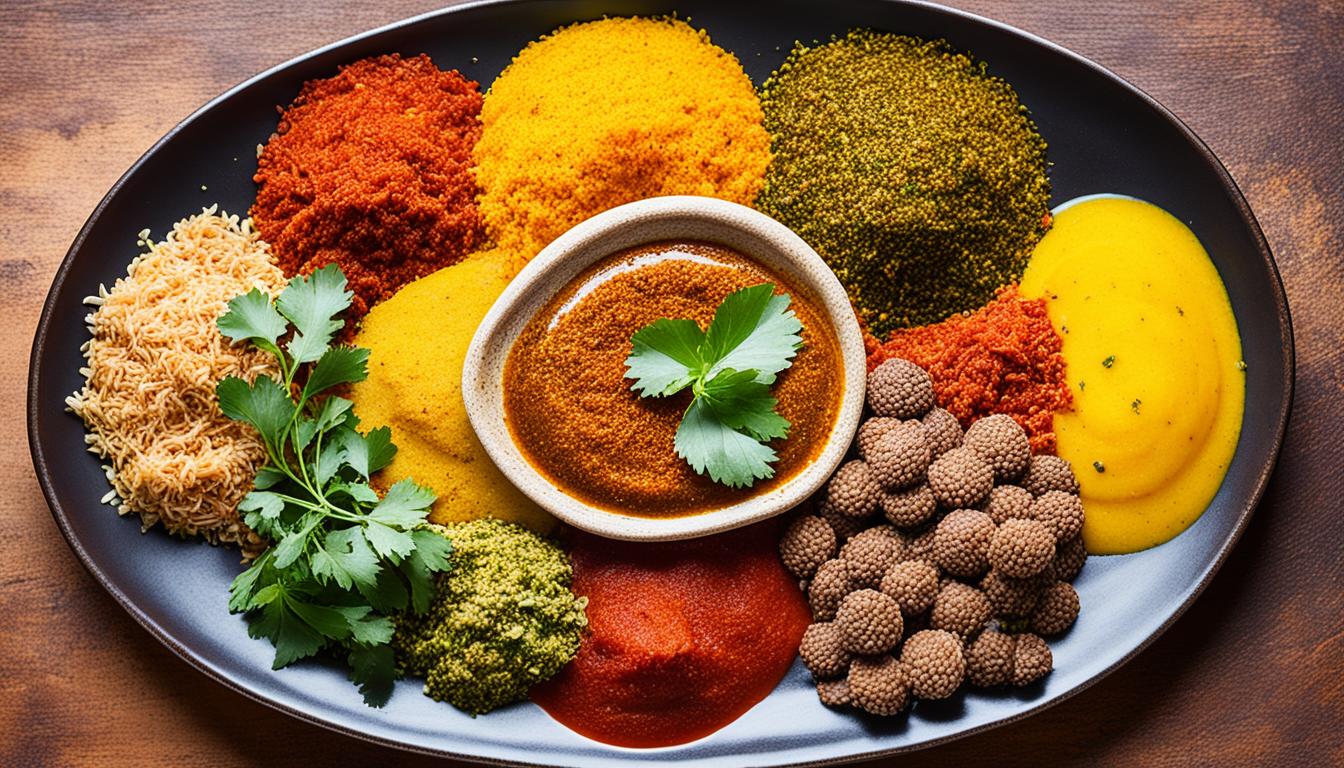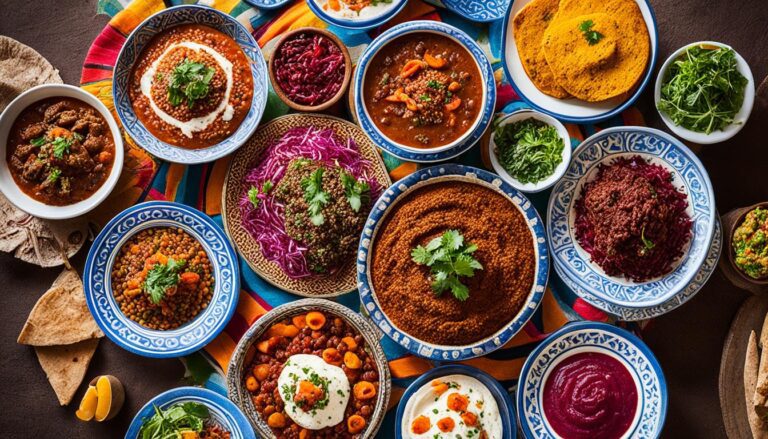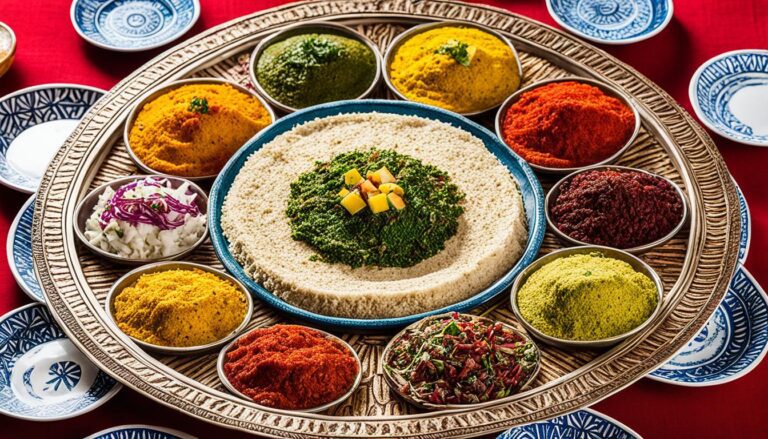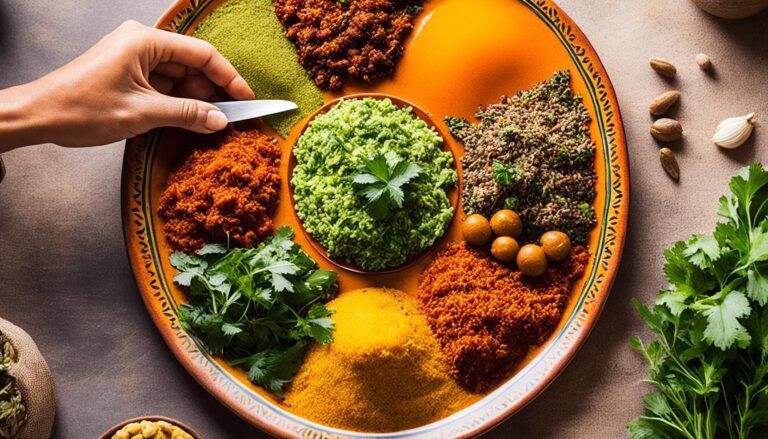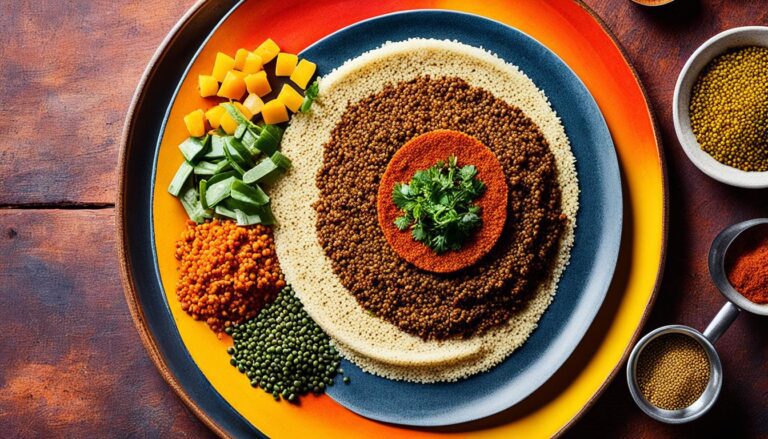What Kind of Oil Is Used in Ethiopian Food?
When it comes to Ethiopian cuisine, the flavors and spices are truly a culinary adventure. But have you ever wondered what kind of oil is used in Ethiopian food? This crucial ingredient plays a significant role in creating the authentic tastes and aromas that make Ethiopian dishes so distinctive. Let’s explore the traditional oils used in Ethiopian cooking and discover how they contribute to the rich flavors of this fascinating cuisine.
Key Takeaways:
- The oil used in Ethiopian food is an essential ingredient for enhancing the flavors of the dishes.
- Traditional Ethiopian cooking uses oils such as niter kibbeh and nug as key components.
- You can still experience the flavors of Ethiopian cuisine by using alternative oils or substitutes.
- Understanding the traditional ingredients and cooking methods will help you recreate Ethiopian flavors in your own kitchen.
- Exploring Ethiopian cuisine allows you to embark on a flavorful journey to a vibrant culinary culture.
Ethiopian Cuisine and Its Characteristics
Ethiopian cuisine offers a delightful mix of flavors and textures that are unique to this vibrant East African country. At the heart of Ethiopian cuisine is the staple food known as injera. This large sourdough flatbread serves as a versatile base for many dishes.
Alongside injera, Ethiopian cuisine is known for its mouthwatering spicy stews, called wats. Prepared with a variety of vegetables and meats, such as beef, lamb, or chicken, these stews pack a flavorful punch.
The culinary traditions of Ethiopian Orthodox Christians also influence the cuisine. During fasting periods, many Ethiopian dishes become vegan, avoiding the consumption of animal products. This has led to the development of a rich array of vegetarian dishes, creatively prepared with legumes, grains, and spices.
Whether you’re savoring the tangy injera, indulging in a fiery and aromatic stew, or exploring the diverse vegetarian options, Ethiopian cuisine promises a delightful culinary adventure for all tastes.
Traditional Ingredients in Ethiopian Cuisine

Ethiopian cuisine is renowned for its vibrant flavors and unique spice combinations. To truly experience the authentic taste of Ethiopian dishes, it is crucial to understand the traditional ingredients that contribute to their distinctiveness. From fiery spice blends to aromatic butter infusions, these components play a central role in creating the rich and layered flavors that define Ethiopian cuisine.
The Spice Blend: Berbere
One of the most essential ingredients in Ethiopian cooking is berbere, a flavorful spice blend. Made with a combination of chili peppers, aromatic herbs, and earthy spices, berbere adds a fiery kick to Ethiopian recipes. Its complex flavors create a beautiful balance between heat and depth, making it a staple in many Ethiopian dishes.
The Infused Butter: Niter Kibbeh
Niter kibbeh, a spiced clarified butter, is another key ingredient in Ethiopian cuisine. Infused with a blend of ginger, garlic, and a medley of spices, niter kibbeh adds richness and complexity to various dishes. The aromatic flavors of this butter elevate stews, sautés, and even breads, imparting a distinctive Ethiopian taste.
The Fiery Seasoning: Mitmita
For those who relish heat, mitmita is a powdered seasoning mix that adds a fiery touch to Ethiopian cuisine. Made with a blend of chili peppers, spices, and herbs, mitmita intensifies the flavors of dishes and brings a delightful heat that lingers on the palate. It is commonly used as a condiment or a finishing touch to enhance the spiciness of Ethiopian meals.
A Versatile Oil Substitute: Niger Seed Oil (Nug)
In Ethiopian cuisine, niger seed oil, also known as nug, is commonly used as a substitute for traditional cooking oils. This versatile oil offers a light and nutty flavor that complements the aromatic spices and ingredients used in Ethiopian dishes. With its high smoke point, nug is suitable for various cooking methods, from sautéing to deep-frying. Its use adds a unique touch to Ethiopian recipes.
Popular Ethiopian Dishes
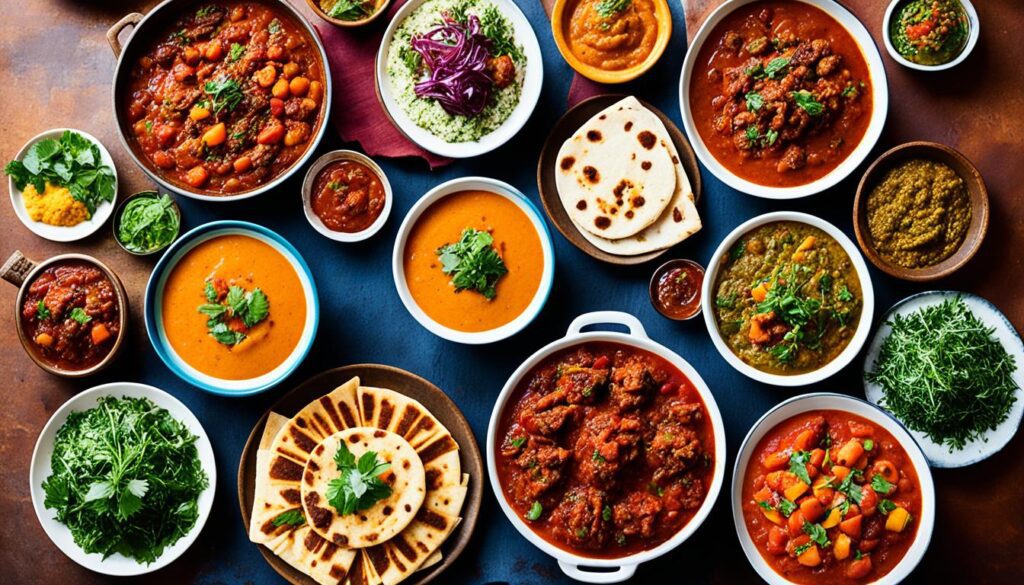
Ethiopian cuisine offers a wide array of delicious dishes that showcase the diverse flavors and textures that make it so unique. Whether you’re a fan of spicy stews, sautéed meats and vegetables, or delicate marinated beef, Ethiopian cuisine has something to satisfy every palate.
Wat: A Spicy Meat and Vegetable Stew
One of the staple dishes in Ethiopian cuisine is wat, a flavorful and aromatic spicy stew made with various meats and vegetables. The combination of tender meat, vibrant vegetables, and complex spices creates a rich and hearty dish that is sure to tantalize your taste buds.
Tibs: Sautéed Meat and Vegetables
Tibs is another beloved dish in Ethiopian cuisine. It consists of succulent pieces of meat, such as beef or lamb, sautéed with vegetables and aromatic spices. The result is a mouthwatering combination of flavors and textures that will leave you craving for more.
Kitfo: A Delicate Minced Beef Delicacy
If you’re looking to explore more adventurous flavors, kitfo is a must-try dish. It is made with raw or rare minced beef that is seasoned with a blend of spices and marinated to perfection. The dish is often served with injera, a traditional flatbread, and accompanied by a variety of flavorful condiments.
When it comes to Ethiopian cuisine, the dishes mentioned above are just the tip of the iceberg. The rich and vibrant flavors, combined with the intriguing use of traditional spices and cooking techniques, make Ethiopian food a truly unique and delightful culinary experience.
Oil Substitutes and Cooking Methods
While niter kibbeh is commonly used in Ethiopian cooking, there are alternative options available if you’re looking for a niter kibbeh substitute or prefer to use different types of oil. In traditional Ethiopian recipes, clarified butter, known as niter kibbeh, is emphasized for its distinct flavor. However, if you follow a vegan or dairy-free diet, or simply prefer to use cooking oil, there are suitable substitutes.
When choosing a substitute for niter kibbeh in Ethiopian cuisine, it’s important to consider your personal preference and regional variations within Ethiopian cooking. Different oils can bring their own unique flavors and characteristics to the dishes you prepare.
If you prefer to maintain the traditional flavors, you can try using ghee, a form of clarified butter commonly found in Indian cuisine, as a substitute for niter kibbeh. Ghee offers a similar richness and depth of flavor that complements Ethiopian dishes.
For a vegan or dairy-free alternative, cooking oil can be used as a substitute for niter kibbeh. Popular cooking oils such as olive oil, vegetable oil, or grapeseed oil can work well in Ethiopian recipes, imparting their own subtle flavors to the dishes.
It’s worth noting that the choice of oil may alter the taste and overall character of the dish. Experimenting with different oils can add a new dimension to your cooking, allowing you to personalize your favorite Ethiopian recipes.
Conclusion
Embark on a culinary journey to Ethiopia and experience the rich flavors of traditional Ethiopian cuisine. A key element in Ethiopian cooking is the use of oil, which adds depth and enhances the unique flavors of the dishes. Whether you opt for the traditional Ethiopian oil, niter kibbeh, or explore alternative cooking oils, the choice of oil plays a vital role in capturing the authentic taste of Ethiopian dishes.
Traditional Ethiopian flavors are a result of carefully selected ingredients and cooking methods. The iconic spice blend called berbere, the aromatic spiced butter known as niter kibbeh, and the fiery mitmita seasoning contribute to the distinctive taste profile of Ethiopian cuisine. Additionally, nug, a commonly used Ethiopian oil substitute, further enriches the flavors.
By understanding the traditional ingredients and cooking techniques, you can recreate the flavors of Ethiopia in your own kitchen. Experiment with Ethiopian spices and oils to prepare popular Ethiopian dishes like wats, tibs, and kitfo. Allow your taste buds to savor the vibrant and diverse tastes that Ethiopian cuisine has to offer.
Venture into the world of Ethiopian flavors and explore the wide range of delicious dishes that this cuisine has to offer. Whether you are passionate about Ethiopian food or seeking a new culinary experience, the use of Ethiopian oil in cooking and the traditional flavors it imparts will transport you to the heart of Ethiopian culture.

